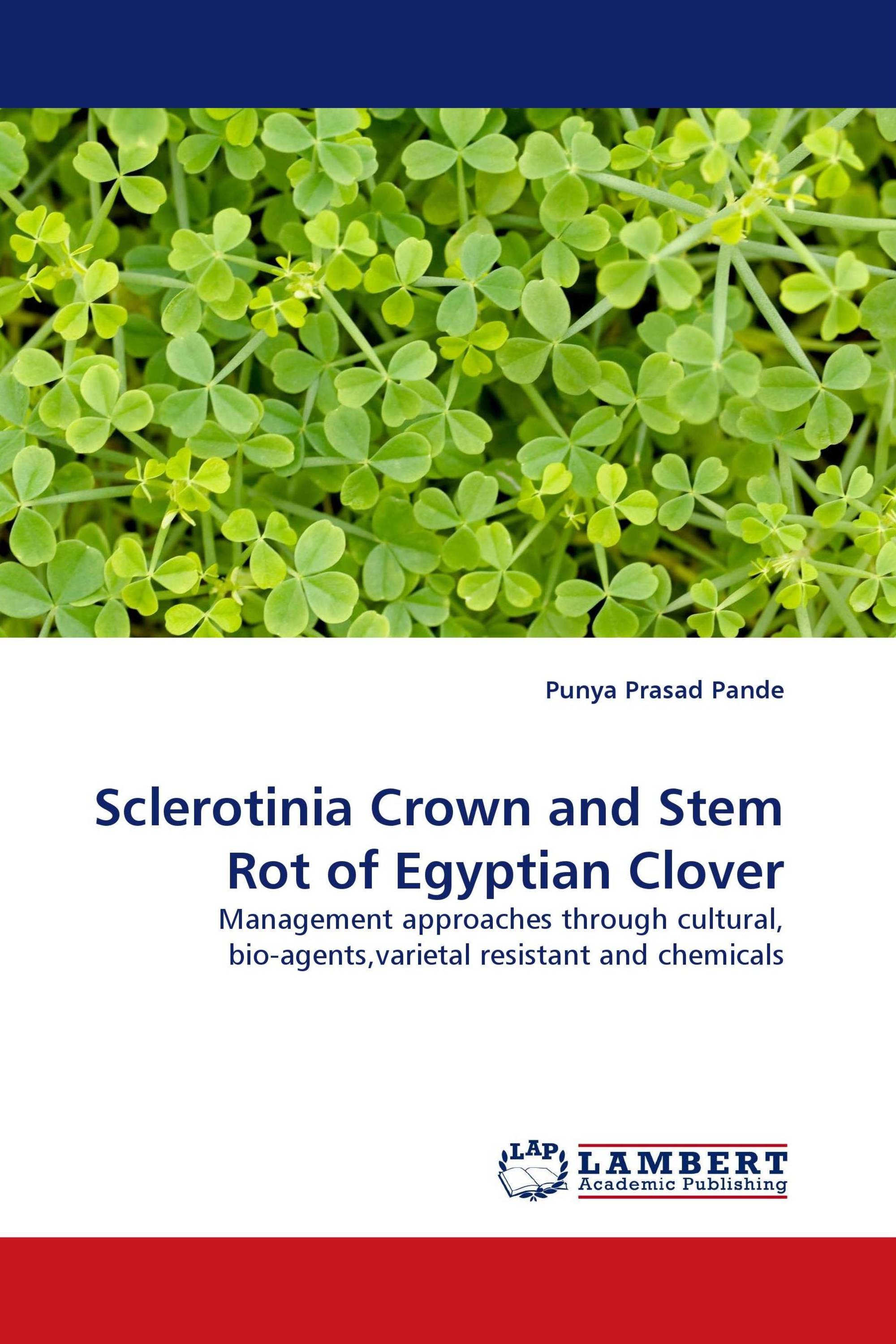Sclerotinia Crown and Stem Rot of Egyptian Clover
Management approaches through cultural, bio-agents,varietal resistant and chemicals
€ 49,00
Investigations were undertaken to find out the viability of sclerotia of stem rot disease of Egyptian clover and management of stem rot through cultural practices, varietal resistance, bio-agents and chemicals. Viability of sclerotia was found reduced with the increase in soil depth and duration of burial. None of the sclerotia germinated when placed below 5 cm for six months in soil under field condition. Early sowing of clover resulted in the higher disease incidence, lowest green fodder and seed yield as compared to the normal and late sown crop. Growing maize as preceding Kharif crop significantly reduced disease incidence and increased green fodder and seed yield. Two indigenous genotypes showed resistant reaction while five indigenous and two exotic genotypes showed moderately resistant reaction. Soil application of Trichoderma mixed along with FYM before sowing significantly reduced the disease incidence and increased the green fodder and seed yield as compared to control. Seed treatment with carbendazim and salicylic acid solution for seed soaking and spray significantly reduced the disease incidence and increased the green fodder and seed yield.
Book Details: |
|
|
ISBN-13: |
978-3-8443-0746-7 |
|
ISBN-10: |
384430746X |
|
EAN: |
9783844307467 |
|
Book language: |
English |
|
By (author) : |
Punya Prasad Pande |
|
Number of pages: |
88 |
|
Published on: |
2011-02-20 |
|
Category: |
Agriculture, horticulture, forestry, fishery, nutrition |
